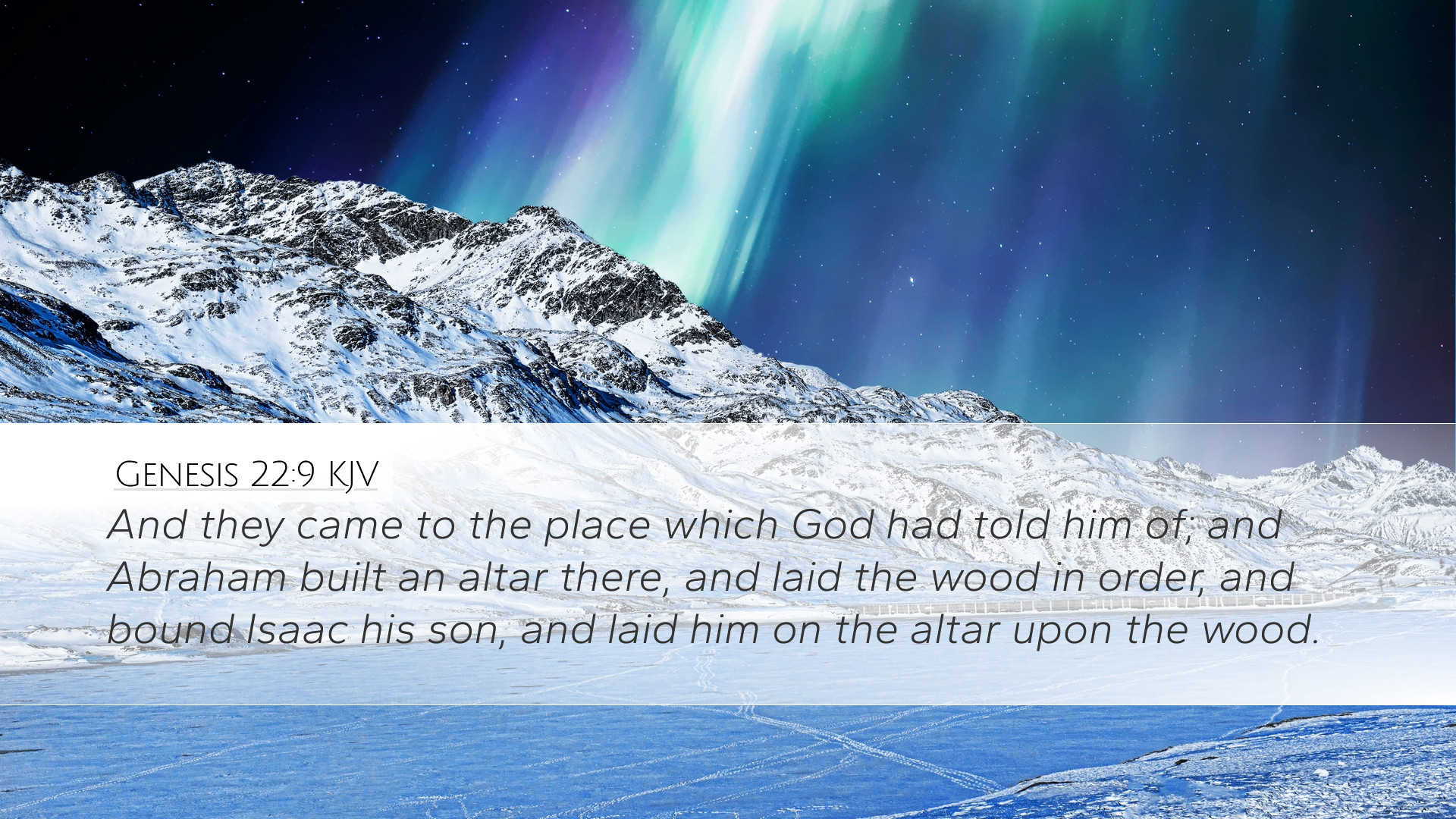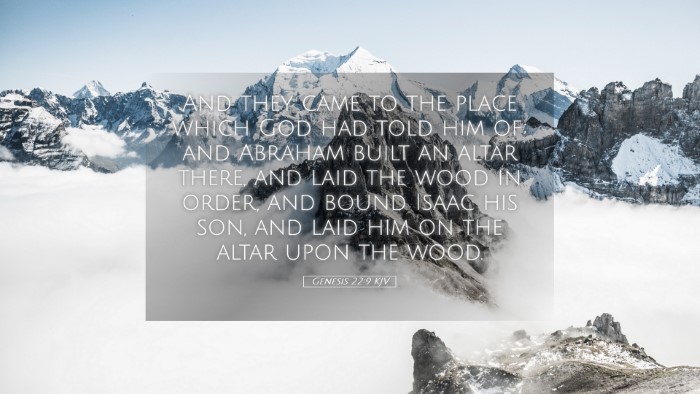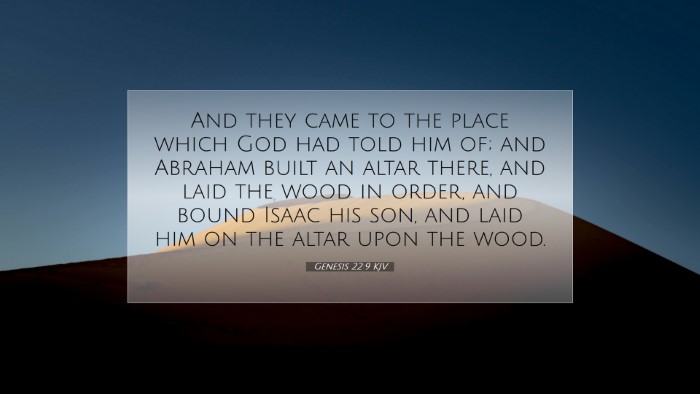Commentary on Genesis 22:9
Genesis 22:9 is a pivotal moment in the narrative of Abraham, illustrating themes of faith, obedience, and divine provision. The verse reads:
"When they came to the place which God had told him of, Abraham built an altar there and laid the wood in order, and bound Isaac his son and laid him on the altar upon the wood."
Context of the Passage
This passage occurs in the larger context of the Akedah, or the "Binding of Isaac," where God tests Abraham's faith by commanding him to sacrifice his beloved son, Isaac. This event not only serves as a test of Abraham's faith but is also foundational in understanding God's character and the foreshadowing of future events in biblical history.
Insights from Matthew Henry
Matthew Henry emphasizes the profound obedience of Abraham in this moment. He notes that:
- Preparation for Sacrifice: Abraham's immediate action to build an altar signifies his readiness to obey God without delay, showcasing his unwavering faith.
- Isaac's Role: The binding of Isaac also indicates his acceptance and submission, and it speaks volumes about the father-son relationship based on trust.
- Divine Trial: Henry reminds us that God tests the faithful, not to lead them into sin, but to demonstrate their fidelity and reliance on God's promises.
Insights from Adam Clarke
Adam Clarke provides a scholarly perspective on the historical and cultural context of this narrative:
- Historical Setting: Clarke notes the significance of altars in ancient Near Eastern culture as places of worship, essentially turning this moment into a profound act of devotion.
- Symbolism of Wood: He points out that the wood laid on the altar serves as a symbol of the sacrificial system that would later characterize Israel's worship, indicating that Abraham's actions foreshadowed future sacrificial practices.
- Foreshadowing the Crucifixion: Clarke draws parallels between Isaac's submission and the future sacrifice of Christ, highlighting the theological implications for understanding salvation history.
Insights from Albert Barnes
Albert Barnes provides a critical view of the theological implications of Abraham's actions. He highlights several key points:
- Obedience amidst Uncertainty: Barnes discusses how Abraham’s willingness to sacrifice Isaac reveals the essence of faith—obedience without fully understanding God's plan.
- Relationship Dynamics: The act of binding Isaac can also exemplify the strong trust dynamics between father and son, showcasing how faith is often a communal exercise.
- God's Provision: Ultimately, Barnes leads the reader to reflect on the providential care that God demonstrates, which will culminate in the ram provided in place of Isaac.
Theological Implications
The narrative of Genesis 22:9 embeds rich theological implications that resonate throughout Scripture:
- Faith in Action: Abraham's progression from God's command to actual obedience illustrates that true faith manifests through action, serving as a model for believers.
- God's Faithfulness: This moment reassures the faithful of God's loyal commitment to His promises, even in challenging circumstances.
- Christocentric Reading: The underlying theme of sacrifice points directly to the New Testament revelation of Christ, emphasizing God's ultimate sacrifice for humanity.
Applications for Today
The lessons derived from Genesis 22:9 remain relevant for contemporary Christians:
- Faith in Difficult Times: Believers are encouraged to remain faithful even when circumstances seem dire or incomprehensible.
- Trusting Relationships: The dynamics between Abraham and Isaac serve as a model for trust in relationships, especially parental ones.
- Preparation for Sacrificial Living: This passage calls the church to a life of sacrificial obedience, illustrating that following God may require difficult choices.
Conclusion
In conclusion, Genesis 22:9 serves as a profound lesson on faith, obedience, and divine provision. The insights from various public domain commentaries illuminate the passage's complexity and deepen our understanding of God's nature and His expectations of human beings. As pastors, students, and theologians reflect on this text, it challenges them to consider the depth of their trust in God, encouraging a life marked by faithful obedience, even amidst testing circumstances.


